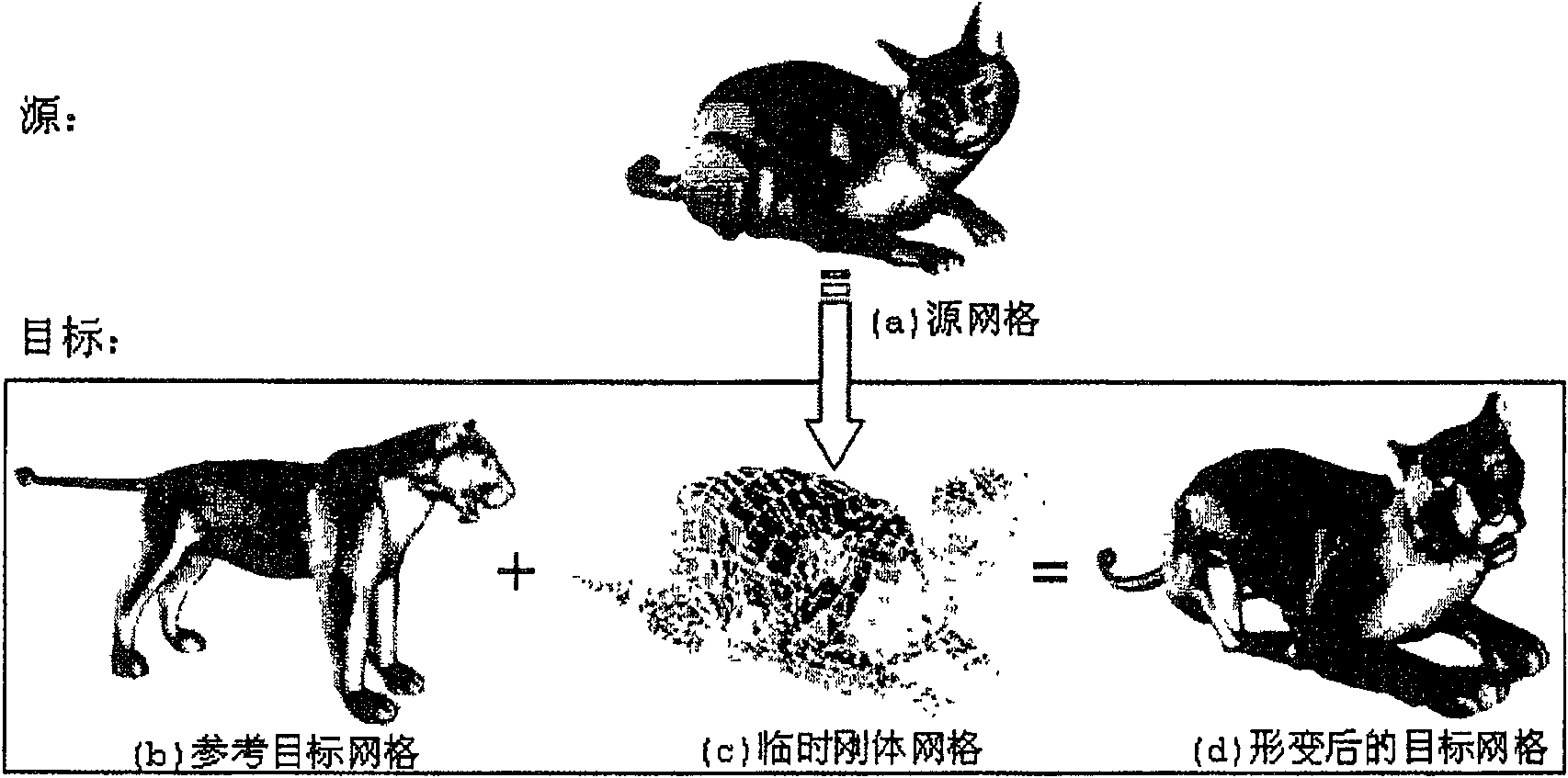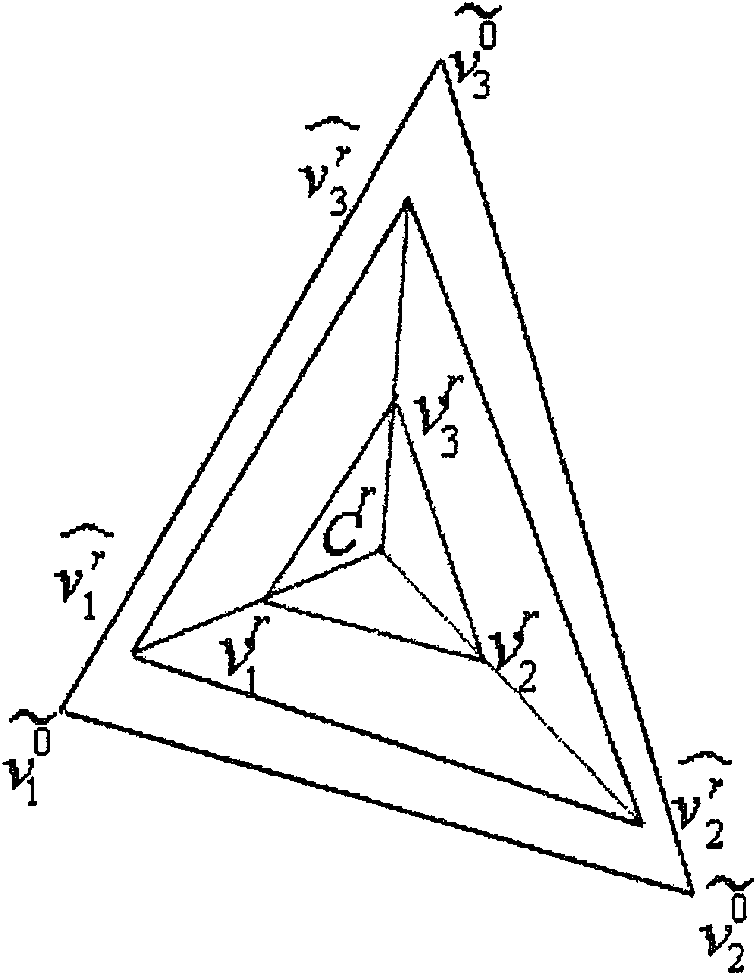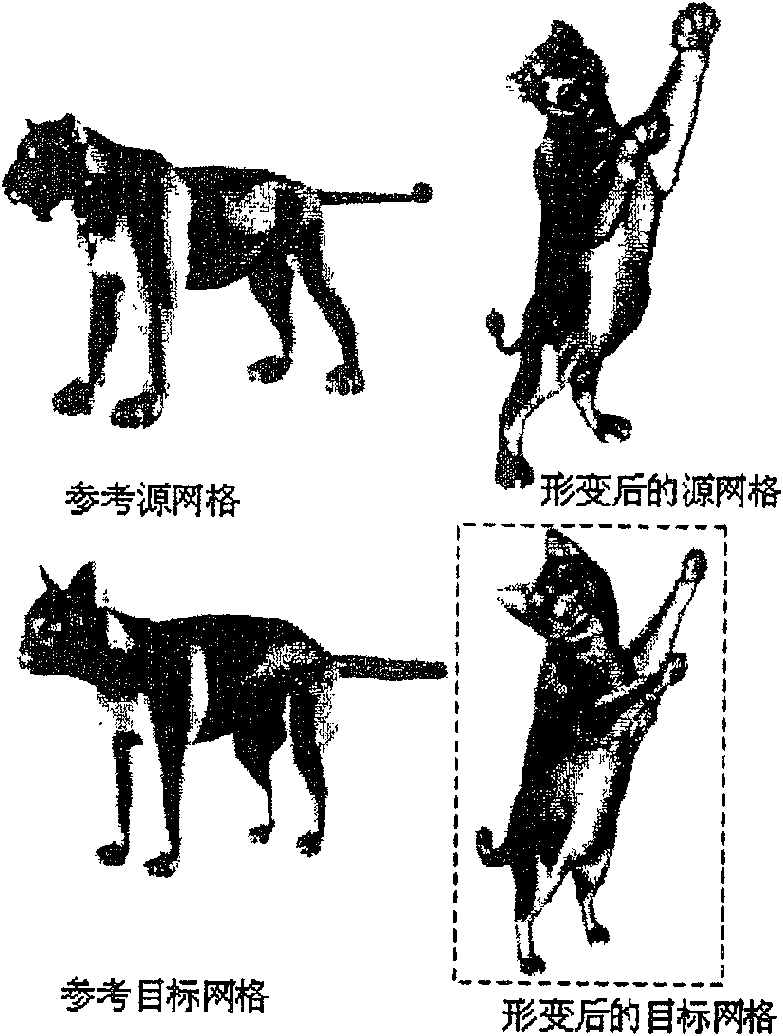Method for directly transferring three-dimensional model attitude
A 3D model and model technology, applied in 3D modeling, image data processing, instruments, etc., can solve the problem that the deformation target model is not vivid enough and cannot be provided.
- Summary
- Abstract
- Description
- Claims
- Application Information
AI Technical Summary
Problems solved by technology
Method used
Image
Examples
Embodiment Construction
[0028] In computer graphics, three-dimensional surfaces are represented using a global or local coordinate system. The global coordinate system explicitly specifies the global Euler coordinates of geometric data to represent a specific shape. In contrast, the local coordinate system encodes the intrinsic geometric parameters of the surface. The global coordinate system is convenient for geometric transformations, texturing, collision detection, and rendering. On the other hand, the local coordinate system is suitable for mesh editing operations that require maintaining local details of the surface.
[0029] To implement a method for directly transferring the pose of a 3D model—the model transduction method—we implement a mesh reconstruction system that incorporates both global and local features. This representation assumes that some triangles are independent and rotation-invariant rigid patches, which are defined in global coordinates. On the other hand, a series of predef...
PUM
 Login to View More
Login to View More Abstract
Description
Claims
Application Information
 Login to View More
Login to View More - R&D
- Intellectual Property
- Life Sciences
- Materials
- Tech Scout
- Unparalleled Data Quality
- Higher Quality Content
- 60% Fewer Hallucinations
Browse by: Latest US Patents, China's latest patents, Technical Efficacy Thesaurus, Application Domain, Technology Topic, Popular Technical Reports.
© 2025 PatSnap. All rights reserved.Legal|Privacy policy|Modern Slavery Act Transparency Statement|Sitemap|About US| Contact US: help@patsnap.com



